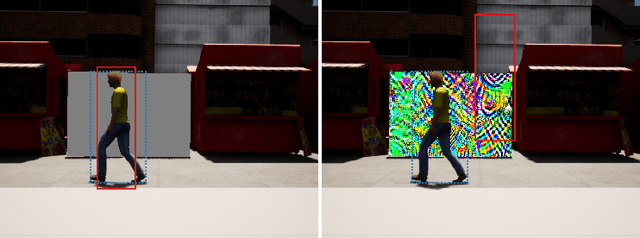Sheng-Yun Peng
SkeleVision: Towards Adversarial Resiliency of Person Tracking with Multi-Task Learning
Apr 02, 2022



Abstract:Person tracking using computer vision techniques has wide ranging applications such as autonomous driving, home security and sports analytics. However, the growing threat of adversarial attacks raises serious concerns regarding the security and reliability of such techniques. In this work, we study the impact of multi-task learning (MTL) on the adversarial robustness of the widely used SiamRPN tracker, in the context of person tracking. Specifically, we investigate the effect of jointly learning with semantically analogous tasks of person tracking and human keypoint detection. We conduct extensive experiments with more powerful adversarial attacks that can be physically realizable, demonstrating the practical value of our approach. Our empirical study with simulated as well as real-world datasets reveals that training with MTL consistently makes it harder to attack the SiamRPN tracker, compared to typically training only on the single task of person tracking.
 Add to Chrome
Add to Chrome Add to Firefox
Add to Firefox Add to Edge
Add to Edge